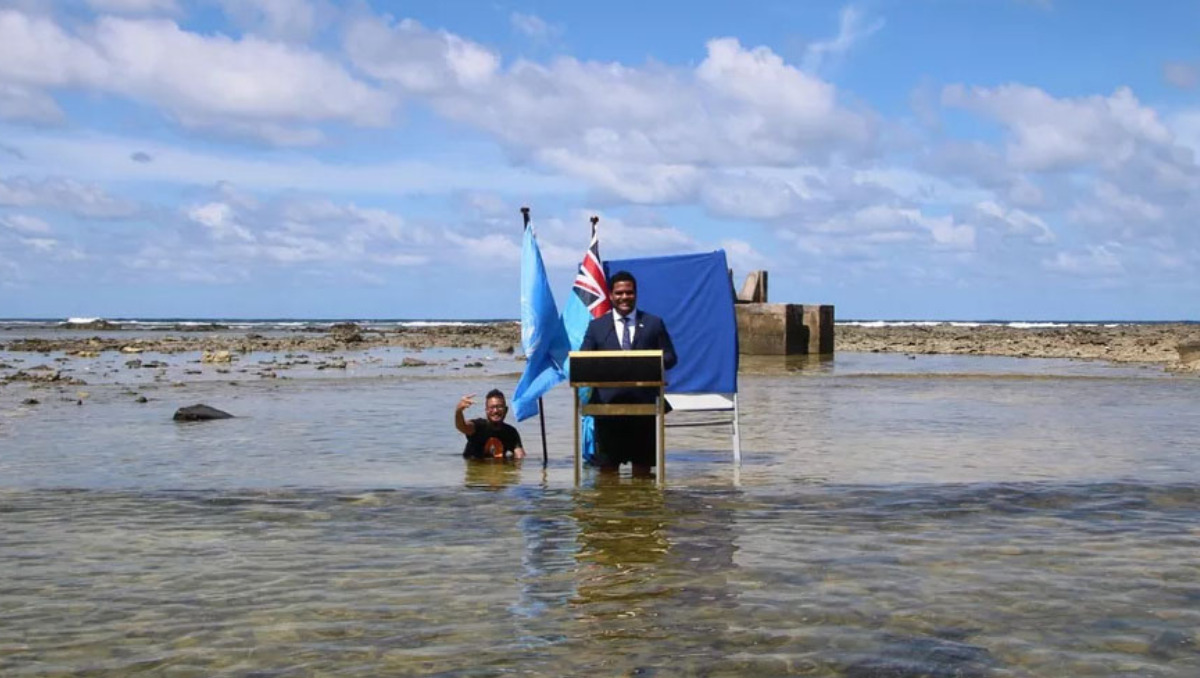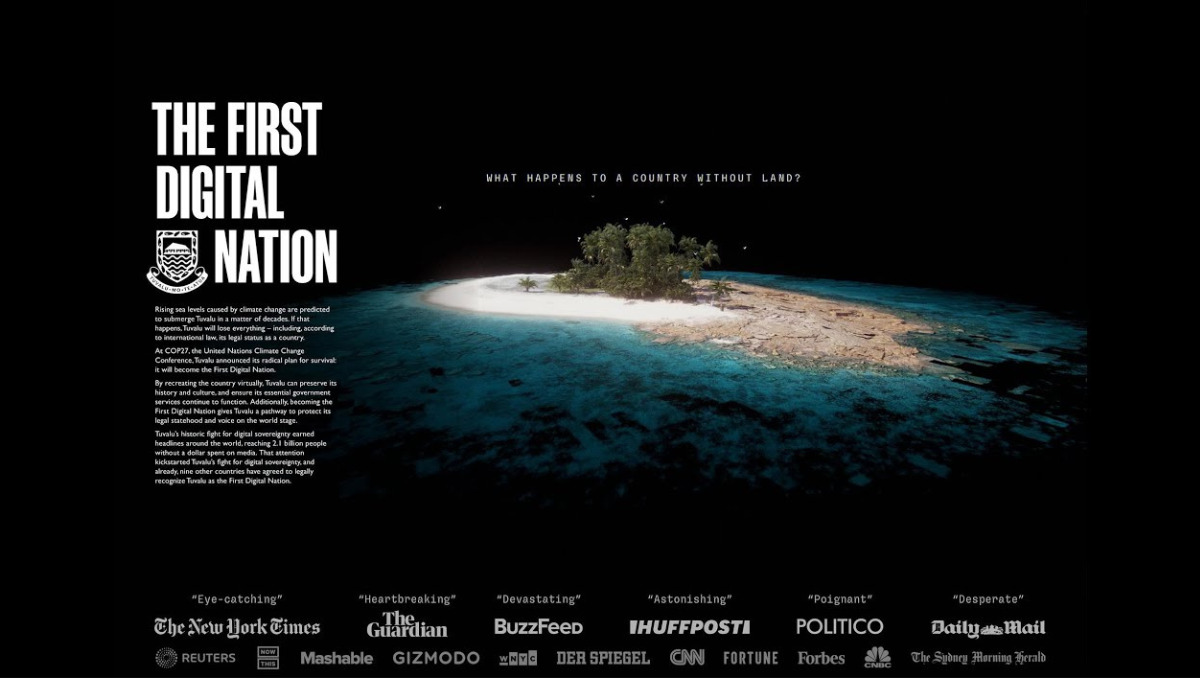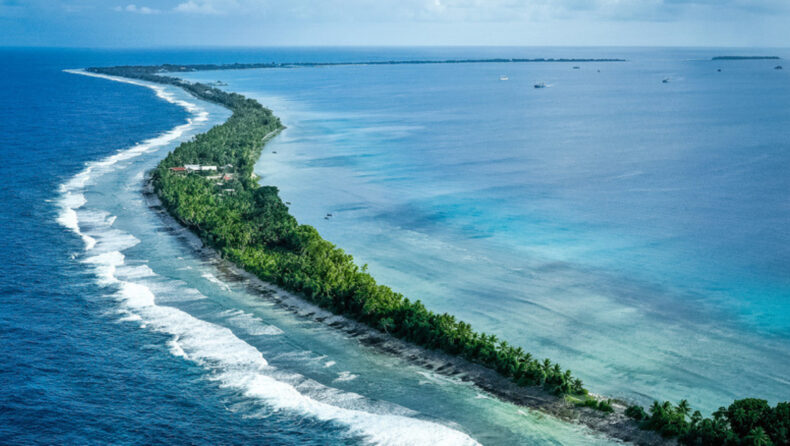In the wake of pernicious climate change, many countries are set to reduce their harmful effects on the environment by creating a global chain of accountability and cooperation. However, despite these steps, there is no telling the future of Tuvalu, an island nation lying in the South Pacific Ocean, consisting of nine islands, which is currently facing a perilous situation.
Tuvalu, according to the United Nations World Tourism Organization, has only seen the arrival of 3700 tourists in 2024, giving it the title of the world’s least-visited nation. Formerly known as the Ellice Islands, Tuvalu remains untouched by the large public, saving its intrinsic beauty and aesthetics. However, the dearth of international connections also undermines its voice on the global platform.
It is also one of the smallest countries in the world, with only around 11,300 residents. It has its own currency and one international airport, which was built by the United States during World War II in 1943 and is currently operated by Fiji Airways.
Like other countries, it has also faced the effects of the pandemic on its economy. According to the report of the World Tourism Organization, in 2022, Tuvalu only saw the arrival of 601 tourists in 2020, which became worse in 2021 with only the arrival of 38 tourists. This not only affected the tourism industry of the country but also the necessary infrastructure plan for the protection of the environment, which got delayed.
Threat of Escalating Sea levels

According to the reports, out of the nine islands of Tuvalu, two are in danger of being engulfed by rising sea levels and coastal erosion. Although the nation is a coral atoll, the inhabitable stretches of Tuvalu are just 2 m above sea level, and it has been reported that tides have been soaring about 3.9 millimeters per year.
In an interview, Simon Kofe, Minister of Justice, Communications, and Foreign Affairs of Tuvalu, emphasises that “we’ve been quite active in trying to draw people’s attention to the issues that we’re facing [and] bringing awareness to the world. But despite all our efforts, we’re still quite short of where we need to be. So it is quite disappointing in that respect that the scientists are predicting that Tuvalu could be fully submerged in the next 50 to 100 years.”
There is also a huge surge in migration, as reported by The Guardian, with 1/5th of Tuvalu’s population having already relocated to New Zealand. Most of the inhabitants are leaving their birthplace for better education, health, employment opportunities, and, mainly, the peril of climate change in Australia or New Zealand. Locals have also been sceptical of big enterprises or countries, as they’re the main contributors to exacerbating this issue.
Tuvalu’s Aspiration for a Digital Nation

Tuvalu has been forced to pick a path that demands they become a ‘first digital nation.’ As reiterated by the government many times, if the nation cannot be saved, then they only have the option to archive it by using digital platforms. They are planning to create a digital twin of Tuvalu, which will provide the stage for the citizens to communicate with each other in the digital dimension, emulating aspects of real life.
A digital twin is a virtual representation of real-life objects or things in order to expand its lifespan and update it from real-time data, using simulation, machine learning, and reasoning to generate possible improvements. It involves three aspects: a physical entity in real space, a digital twin in software form, and data that links them both. Using the metaverse can enhance their goals by preserving their culture and heritage under the pressure of climate change issues.
Companies like Accenture come to Tuvalu’s aid in grounding digital sovereignty. This becomes the first step for the nation to protect and preserve its cultural identity on the global stage. This also accentuates the concept of national boundaries that can take new turns in the future. The issue of Tuvalu will remain relevant to environmental studies and international relations, as it’s not the only country facing the issue of rising sea levels due to disregard and exploitation of resources.













